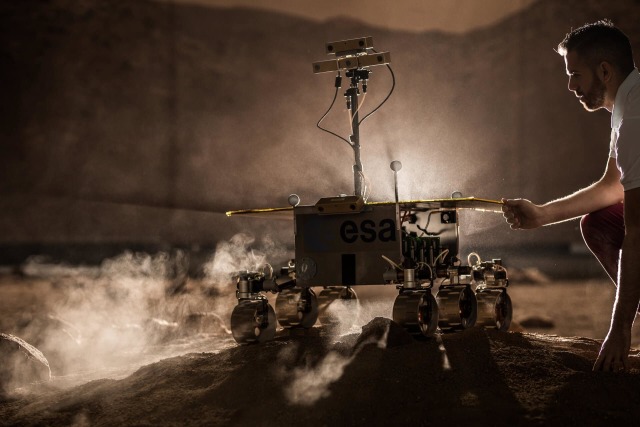In response, the Russian ISS crew stops working with ERA, a remote—controlled robotic arm developed by the European Space Agency.
The Director General of the European Space Agency (ESA), Josef Aschbacher, said that the ruling council had instructed to officially terminate the cooperation with the state corporation Roscosmos on the ExoMars mission, which was suspended in March . He wrote about it on Twitter.
According to the head of ESA, the circumstances that affected the interaction with the Russian side — the conflict in Ukraine and the sanctions imposed on Moscow because of it - still persist. "Options for further actions with other partners will be presented at a media briefing on July 20, details will appear later," Ashbacher said. Earlier, ESA noted that they expect support from the US National Aeronautics and Space Administration.
Dmitry Rogozin, the General director of the Russian Space Agency, promptly responded to the news. "Did this head of the European Space Agency think about how many thousands of scientists and engineers in Europe and Russia he crossed out with his decision? Is he ready to answer for sabotaging a joint Mars mission? No, not in front of irresponsible bureaucrats like him in the European Commission. Are you ready to answer to humanity?" he wrote in his telegram channel.
And immediately the head of Roscosmos announced retaliatory steps: the Russian crew of the International Space Station stops working with ERA (European Robotic Arm, "European Robotic Arm") — a remotely controlled robot manipulator developed in Germany and installed in May 2021 on the Nauka module. "Let Ashbacher himself and his boss Borrel fly into space and do at least something useful in their lives," Rogozin summed up.
Despite recent media reports about the resumption of negotiations on ExoMars 2022, it was only about the return of equipment — Russian, which is stuck in Italy, and European, which is in Russia. The mission, apparently, will be postponed at least to 2026, since it is impossible to launch earlier — the launch window opens once every 26 months.
The ExoMars program is aimed at searching for organic molecules or markers of life on the Red Planet. The first stage was implemented in 2016, but this part of the mission cannot be called completely successful: the Schiaparelli descent module crashed during landing due to premature shutdown of the braking engines. Another component of the program is the Trace Gas Orbiter Orbiter, which in the spring of 2018 successfully began exploring the atmosphere of Mars.
The timing of the launch of ExoMars 2022 has been shifted many times, recently they wanted to hold it this September. Russia was supposed to provide a Proton-M launch vehicle, a descent vehicle and a Kazachok landing platform. In 2023, after landing on the Red Planet, the autonomous six-wheeled European rover Rosalind Franklin would join two rovers, a NASA lander and a Chinese spacecraft, and Kazachok would continue to operate as an automatic station.
However, with the start of the special operation in Ukraine, everything was put on pause, and now the future of ExoMars 2022 looks vague. As noted Rogozin, Russia is able to independently implement the mission or attract other partners to participate, for example China. But Rosalind Franklin, one of the main components of the program, will have to be abandoned in any case, and it is not clear how long it will take to prepare for the launch again.
"Kazachok" remains in Italy for the time being due to the suspension of air traffic with the EU. But the head of Roscosmos again promised to return him "to his native village."

